Health
Paid to Sleep: NY Cracks Down on Napping Health Workers

MICHAEL VIRTANEN, Associated Press
ALBANY, N.Y. (AP) — By day, Tanya Lemon was a 35-year-old single mother who took care of her four children. By night, she worked 12-hour shifts as a nurse at a state group home in suburban Syracuse, paid to watch over vulnerable residents as they slept.
That’s also when she got her own sleep, prosecutors say — a routine that led to felony charges when Dennis Dattalo, a 25-year-old disabled man who couldn’t speak, ran low on oxygen while on her watch and later died.
The case has brought renewed attention in New York to the problem of fatigue among health care workers — and in particular highlights the low-paid nurses, aides and others who care for vulnerable people at night, when sleeping can all too often become part of the job.
Nurse Barbara Parsons worked with Lemon at the Briarwood Lane home in DeWitt, making $34,000 a year. Some staff, she said, signed up for extra shifts to get overtime pay and would shave a half-hour off second shifts to avoid rules limiting work hours. Sleeping on night shifts was common knowledge.
“She wasn’t the only one,” Parsons said. “Everybody knew it.”
While health workers who willfully sleep on the job — as opposed to nodding off or making errors because of fatigue — are more often disciplined or terminated, Lemon’s case last spring fired up prosecutors and invigorated a push by regulators in New York.
New York’s Justice Center for the Protection of People with Special Needs, established in mid-2013 with oversight of six state agencies responsible for more than a million people in direct state care or state-funded nonprofits, identified 458 reports alleging abuse or neglect from its first year that cited sleeping on the job. An additional 64 were classified as “significant incidents,” with potential to harm someone’s health, safety or welfare.
The center in December issued guidance to agencies, caregivers and families statewide in the effort to detect and deter the problem.
Statistics on the number of prosecutions of sleeping health workers are scant; several states contacted by The Associated Press said they don’t track such cases. But judging by the number of cases of sleeping in New York and Ohio, the problem is fairly widespread.
In Ohio Last year, the Department of Developmental Disabilities substantiated 88 instances in which paid caregivers slept on the job. Many happened on overnight shifts, when individuals in their care were asleep. No harm came about, and no law enforcement action was taken.
New York’s guidance on the fatigue problem cited five specific cases of developmentally disabled, mentally ill, drug-addicted and juvenile clients in state homes, all considered vulnerable and needing supervision. One had an unattended seizure. Another, with a tendency to choke, was eating alone at night. Others helped themselves to unlocked medications. One ran away. Six were in a vehicle when their caregiver fell asleep and crashed.
Patricia Gunning, the special prosecutor for New York’s Justice Center for disabled people, led the case against Lemon. She draws a sharp distinction between fatigue or nodding off and deliberate sleeping.
“Willful sleeping on the job is something that rises to criminal conduct,” Gunning said. Her office is investigating another possible criminal case. If they can prove supervisors knew about sleeping and looked the other way, at the Briarwood Lane home or any others, they’ll also be prosecuted, she said.
According to authorities, Lemon was supposed to check on Dattalo every two hours to ensure he was getting enough supplemental oxygen from a mask and to keep his airway clear. For eight hours he wasn’t checked, suffered brain damage from oxygen deprivation and was taken to a hospital, where he died 14 days later.
Lemon pleaded guilty to felony endangerment of a disabled person, was sentenced to 90 days in jail and five years’ probation, lost her nursing license, and is barred from working with individuals New York considers vulnerable.
Advocates for health workers like Lemon note that they work a tough job at a trying schedule for low pay, and have called for raises for what they say is important and underappreciated work caring for people who can’t care for themselves.
Lemon’s attorney, Jeffrey DeRoberts, said she has taken responsibility and is returning to school to learn to drive a truck, and he also noted case information indicated napping on overnight shifts was “not unusual” at Briarwood Lane.
“She was doing the best she could,” he said.
___
Online:
Report from New York’s Justice Center for the Protection of People with Special Needs:
http://on.ny.gov/1F9rs4H
Copyright 2015 The Associated Press. All rights reserved. This material may not be published, broadcast, rewritten or redistributed.
Bay Area
Five Years After COVID-19 Began, a Struggling Child Care Workforce Faces New Threats
Five years ago, as COVID-19 lockdowns and school closures began, most early educators continued to work in person, risking their own health and that of their families. “Early educators were called essential, but they weren’t provided with the personal protective equipment they needed to stay safe,” said CSCCE Executive Director Lea Austin. “There were no special shopping hours or ways for them to access safety materials in those early and scary months of the pandemic, leaving them to compete with other shoppers. One state even advised them to wear trash bags if they couldn’t find PPE.”
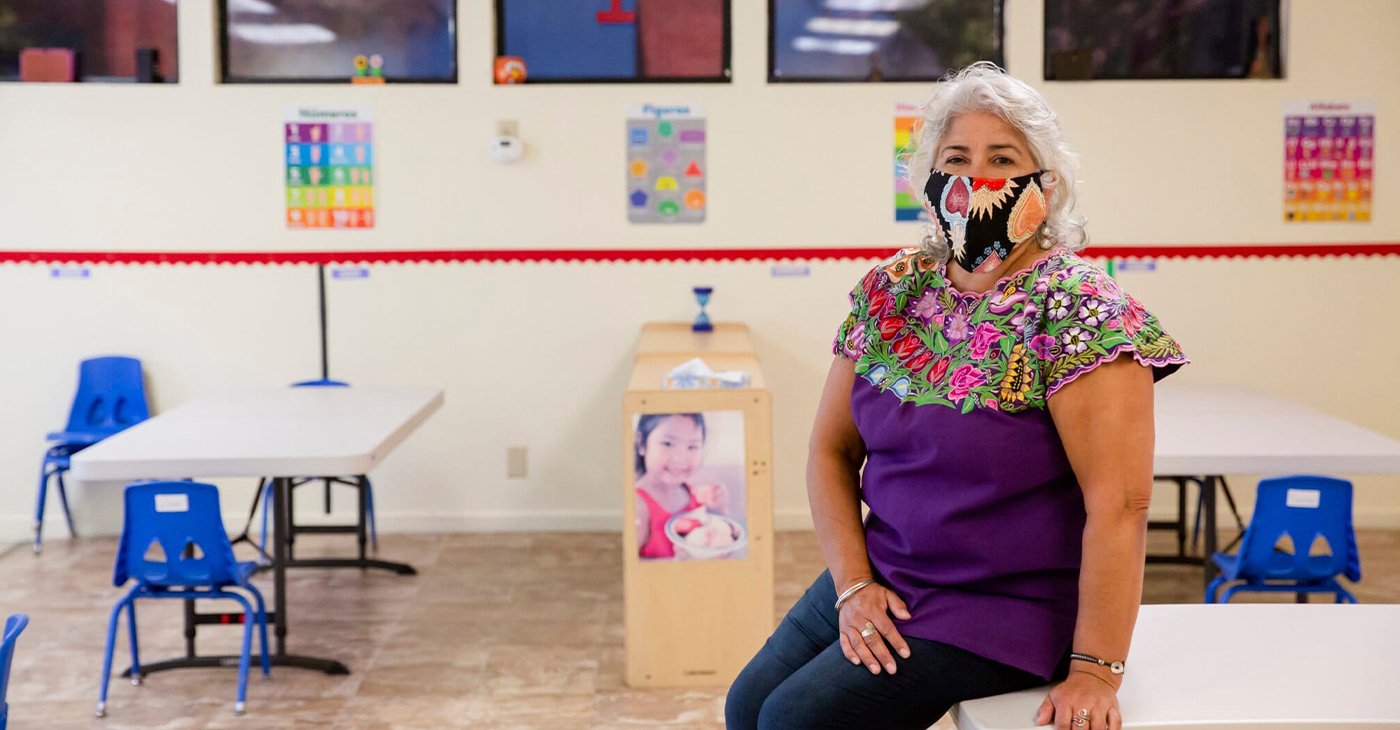
UC Berkeley News
In the first eight months of the COVID-19 pandemic alone, 166,000 childcare jobs were lost across the nation. Significant recovery didn’t begin until the advent of American Rescue Plan Act (ARPA) Child Care Stabilization funds in April 2021.
Today, child care employment is back to slightly above pre-pandemic levels, but job growth has remained sluggish at 1.4% since ARPA funding allocations ended in October 2023, according to analysis by the Center for the Study of Child Care Employment (CSCCE) at UC Berkeley. In the last six months, childcare employment has hovered around 1.1 million.
Yet more than two million American parents report job changes due to problems accessing child care. Why does the childcare sector continue to face a workforce crisis that has predated the pandemic? Inadequate compensation drives high turnover rates and workforce shortages that predate the pandemic. Early childhood educators are skilled professionals; many have more than 15 years of experience and a college degree, but their compensation does not reflect their expertise. The national median hourly wage is $13.07, and only a small proportion of early educators receive benefits.
And now a new round of challenges is about to hit childcare. The low wages paid in early care and education result in 43% of early educator families depending on at least one public support program, such as Medicaid or food stamps, both of which are threatened by potential federal funding cuts. Job numbers will likely fall as many early childhood educators need to find jobs with healthcare benefits or better pay.
In addition, one in five child care workers are immigrants, and executive orders driving deportation and ICE raids will further devastate the entire early care and education system. These stresses are part of the historical lack of respect the workforce faces, despite all they contribute to children, families, and the economy.
Five years ago, as COVID-19 lockdowns and school closures began, most early educators continued to work in person, risking their own health and that of their families. “Early educators were called essential, but they weren’t provided with the personal protective equipment they needed to stay safe,” said CSCCE Executive Director Lea Austin. “There were no special shopping hours or ways for them to access safety materials in those early and scary months of the pandemic, leaving them to compete with other shoppers. One state even advised them to wear trash bags if they couldn’t find PPE.”
The economic impact was equally dire. Even as many providers tried to remain open to ensure their financial security, the combination of higher costs to meet safety protocols and lower revenue from fewer children enrolled led to job losses, increased debt, and program closures.
Eventually, the federal government responded with historic short-term investments through ARPA, which stabilized childcare programs. These funds provided money to increase pay or provide financial relief to early educators to improve their income and well-being. The childcare sector began to slowly recover. Larger job gains were made in 2022 and 2023, and as of November 2023, national job numbers had slightly surpassed pre-pandemic levels, though state and metro areas continued to fluctuate.
Many states have continued to support the workforce after ARPA funding expired in late 2024. In Maine, a salary supplement initiative has provided monthly stipends of $240-$540 to educators working in licensed home- or center-based care, based on education and experience, making it one of the nation’s leaders in its support of early educators. Early educators say the program has enabled them to raise wages, which has improved staff retention. Yet now, Governor Janet Mills is considering cutting the stipend program in half.
“History shows that once an emergency is perceived to have passed, public funding that supports the early care and education workforce is pulled,” says Austin. “You can’t build a stable childcare workforce and system without consistent public investment and respect for all that early educators contribute.”
The Center for the Study of Childcare Employment is the source of this story.
Activism
San Francisco Is Investing Millions to Address Food Insecurity. Is Oakland Doing the Same?
There are over 350 grocery programs across San Francisco. Less than a handful in District 10, a neighborhood classified as a food desert, and includes Hunters Point, one of the lowest income areas in the city.
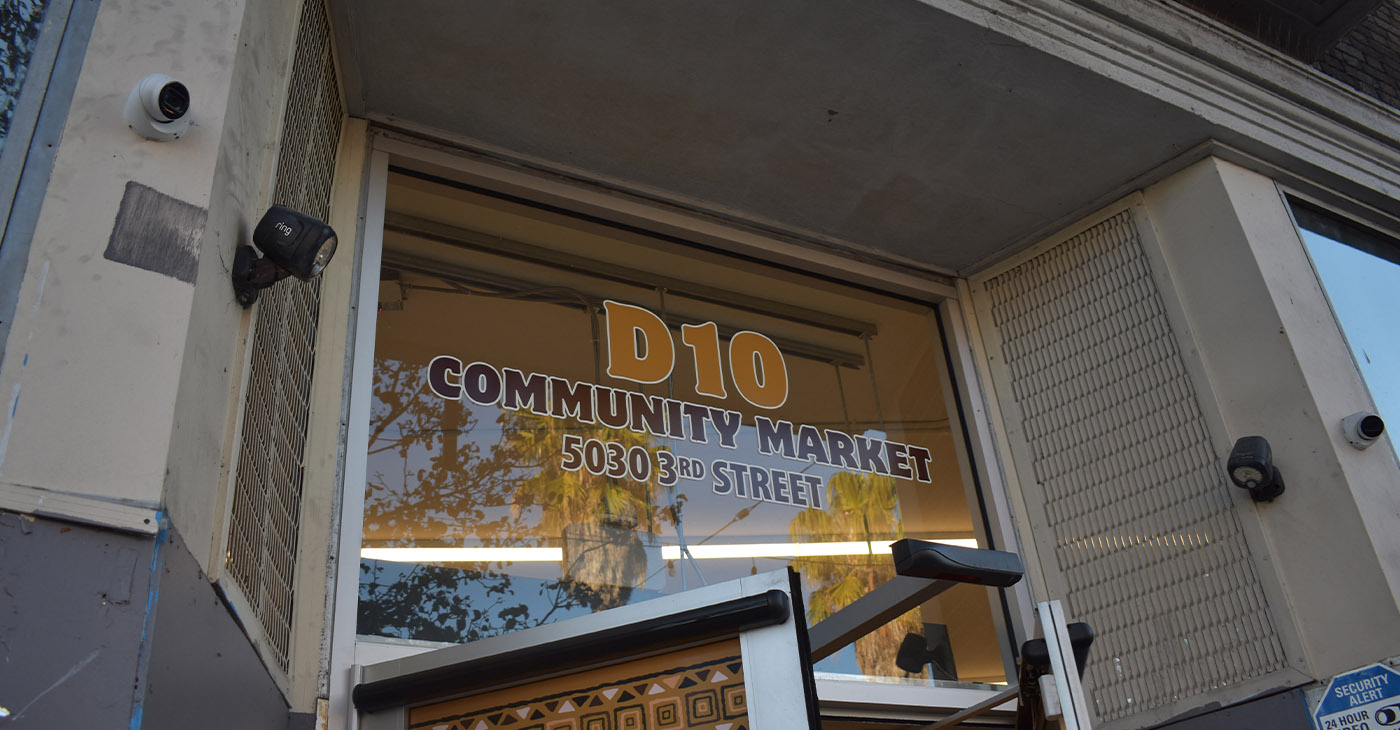
By Magaly Muñoz
On a Thursday evening in February, Marquez Boyd walked along the aisles of San Francisco’s District 10 Community Market looking for eggs and fresh produce to take home to his children. He has been trying new recipes with ingredients he previously couldn’t afford or access.
“I learned how to cook greens since they got a lot of fresh greens here,” Boyd said. “All that stuff is better and more healthy for my kids because they’re still young.”
Meals filled with fresh produce are now possible for Boyd since the District 10 market in Hunters Point opened in 2024 when Bayview Senior Services, a non-profit running the program, received a $5 million investment from the city of San Francisco.
The market is a twist on a traditional food bank, where people can often wait in long lines for pre-bagged groceries they may not need. Here, the goal is to offer people in need a more traditional grocery store setting, with a bigger range of healthy options and less shame for needing assistance.
It’s a twist that Boyd appreciated. “This set up is way better as opposed to maybe like a food bank line,” he said. “It’s easier and faster.”
Similar models exist in Santa Barbara and Tennessee.
There are over 350 grocery programs across San Francisco. Less than a handful in District 10, a neighborhood classified as a food desert, and includes Hunters Point, one of the lowest income areas in the city.
Census Bureau data show that the median income for households in the 94124 zip code, where Hunters Point is located, is just under $83,000 annually. Black households earn about $46,000, Native Hawaiian or other Pacific Islanders earn almost $41,000, and Hispanic households make just above the median income- an average of $86,000.
Located at 5030 3rd Street, the aisles are lined with fresh produce, canned goods, bread and snacks. While refrigerators and freezers in the back of the market are filled with dairy products and meat.
The best part- everything inside is free for eligible customers.

The San Francisco District 10 Community Market is stocked with fresh produce, dairy, meat and chicken, bread, and cultural food staples. Directors of the market say they pride themselves on providing healthy options for community members. Photo by Magaly Muñoz.
“The interesting thing about this market is that it’s a city-funded effort to create something besides the average food line to give more dignity and choice than is normally given to low-income people,” said Cathy Davis, executive director of Bayview Senior Services.
Davis said people feel more comfortable coming into the market because they can choose the food they want and at a time that’s convenient for them.
Boyd, a single father of two kids, recently lost his job and relied on his sister’s generosity before discovering the market. He comes to market when he gets off of work in the evening.
“It’s a lot of people in these communities that don’t get a chance to eat healthy,” Boyd said. “They don’t have the money to go to grocery stores to buy expensive stuff.”
Another shopper, Rhonda Hudson, said the market helped her meet her grandson’s diet-related health problems. She used to travel outside the neighborhood for affordable groceries, but now she no longer has to.
According to the city’s Human Services Agency, there are no plans to expand the markets in San Francisco due to budget constraints.
But Davis isn’t worried about losing the market funding.
“City leaders were on board with creating it and finding the money to put it together so I would say we didn’t have to advocate because it came through the government. Now it’s our job to keep it going to prove that it’s a pilot worth maintaining,” Davis said.
District 10 Supervisor Shamann Walton, who co-sponsored the ordinance, said that projects like the market are “essential to our neighborhoods,” where access to affordable food has been a challenge.
“Investing in local community markets helps ensure that families have reliable, healthy food options close to home, addressing food insecurity and supporting the well-being of our community regardless of income,” Walton said.

Rhonda Hudson is a shopper of the District 10 Community Market in San Francisco. The fresh produce she gets at the free grocery store program helps her grandson, who has a diet-related illness, stay healthy. Photo by Magaly Muñoz.
Why Not Oakland?
Only slightly larger than San Francisco, Oakland has over 400 food distribution sites. Oakland provides grants to nonprofit-run organizations who run grocery programs. But in recent months, the city has begun to reduce those, forcing some organizations to regroup, and making it challenging to implement a community market similar to San Francisco’s.
The Oakland Post repeatedly reached out to city and county officials for comment on the story but did not receive a response.
At several food banks across West and East Oakland, residents shared their frustrations about long lines, wilting produce, and limited food choices.
At one food bank, located at Christian Tabernacle Church, a young mother, who requested anonymity for privacy reasons, waited in the rain for over three hours for a single bag of groceries.
“I like to get here early because I get better [quality] fruits and vegetables,” she said. She added that it’s not a lot of food that she receives for her family, but it helps close the gap when her budget is tight.
Behind her, several other women waited their turn. Neither the timing of the distribution nor the location of the food bank fit their schedules, the women said, but their choices feel limited.
Only a handful of Oakland food bank sites operate throughout the day, like the San Francisco market. Most food distribution programs are sustained by Alameda County Food Bank, not by city funding. Private grants and donations also help fund the programs.
Securing city funding is increasingly challenging. Oakland faces a $130 million budget shortfall, with a projected $280 million deficit in the next biennial cycle. Citing budget concerns, the city has reduced numerous department budgets and grants. One of those cuts included slashing the longstanding SOS Meals on Wheels grant, which helped provide food to 3,000 seniors.
Charlie Deterline, executive director of Meals on Wheels, said the termination of their $150,000 annual grant could mean that Oakland residents might see a change in the amount of meals they receive. The organization has gone 19 months without funding from that grant, Deterline said, but “continued working on good faith from the city” because they were assured they would be paid out. Now, Deterline is having doubts.
The program also received a grant of more than $125,000 from the Sugar Sweetened Beverage Tax. Yet, on June 12, the city informed grant recipients that the funding could be rescinded in order to balance the budget. That ultimately happened, said Deterline.
“Oakland is by far the most expensive city for us to operate in. It is also where the greatest need is – for us to meet that need, it will take the entire community coming together,” Deterline said.
From the sugar tax, money from that measure is also not being allocated correctly as the majority of the funding has been used to fund government services, said members of the SSB tax advisory board.
The tax generates around $7 million annually. 25% to 40% of the funding goes towards grants for community based organizations instead of the 60% allocation that the SSBT advisory board recommended the city to use for health programs. The rest of the funding goes to the city, according to Oakland’s mid-cycle budget.
Advisory board member Dwayne Aikens said he’s not sure Oakland will ever renew the grants that have been cut from this tax. “I’m looking at the conditions of the city and I’m not optimistic,” Aikens said. “If they don’t have the money now, I don’t think they’ll have the money in the future.”
Aikens said the tax was “kind of a waste.” He’s heard displeasure from the community about the lack of funding into Black and Brown neighborhoods, groups who typically live in areas of Oakland that see health and income disparities.
Meanwhile, the Community Market, which reflects the diversity of the Bayview Hunters Point community, is investing in over 800 of the city’s most vulnerable households. In-store staff and directors speak the languages common to the area and the program provides a culture-of-the week selection of foods for those interested in trying something new.
Davis said it’s up to local municipalities to ensure that residents don’t go to bed hungry, and investments need to be made in order to combat the pockets of neighborhoods who are on the brink of food insecurity.
“That’s just such a core responsibility and a core goal of everyone, to make sure that people are fed and healthy. It’s not a luxury item,” Davis said. “It’s something that needs to happen, whether we’re in a budget crisis or not.”
Reporter Magaly Muñoz produced this story as part of a series as a 2024 USC Annenberg Center for Health Journalism Data Fellow and Engagement Grantee.
Activism
Undocumented Workers Are Struggling to Feed Themselves. Slashed Budgets and New Immigration Policies Bring Fresh Challenges
Founded more than 20 years ago, Street Level Health Project started with a handful of nurses and volunteers visiting day laborer sites in East Oakland to provide medical assistance and other resources to newly arrived immigrants. They quickly spotted symptoms common among day laborers: nausea, fatigue, and headaches. Sitting in the sun for hours waiting for work is typical. Once on a job, some men shared incidents of nearly passing out while working. Volunteer nurses also noticed signs of hunger among the men, with some going days without eating a proper meal.
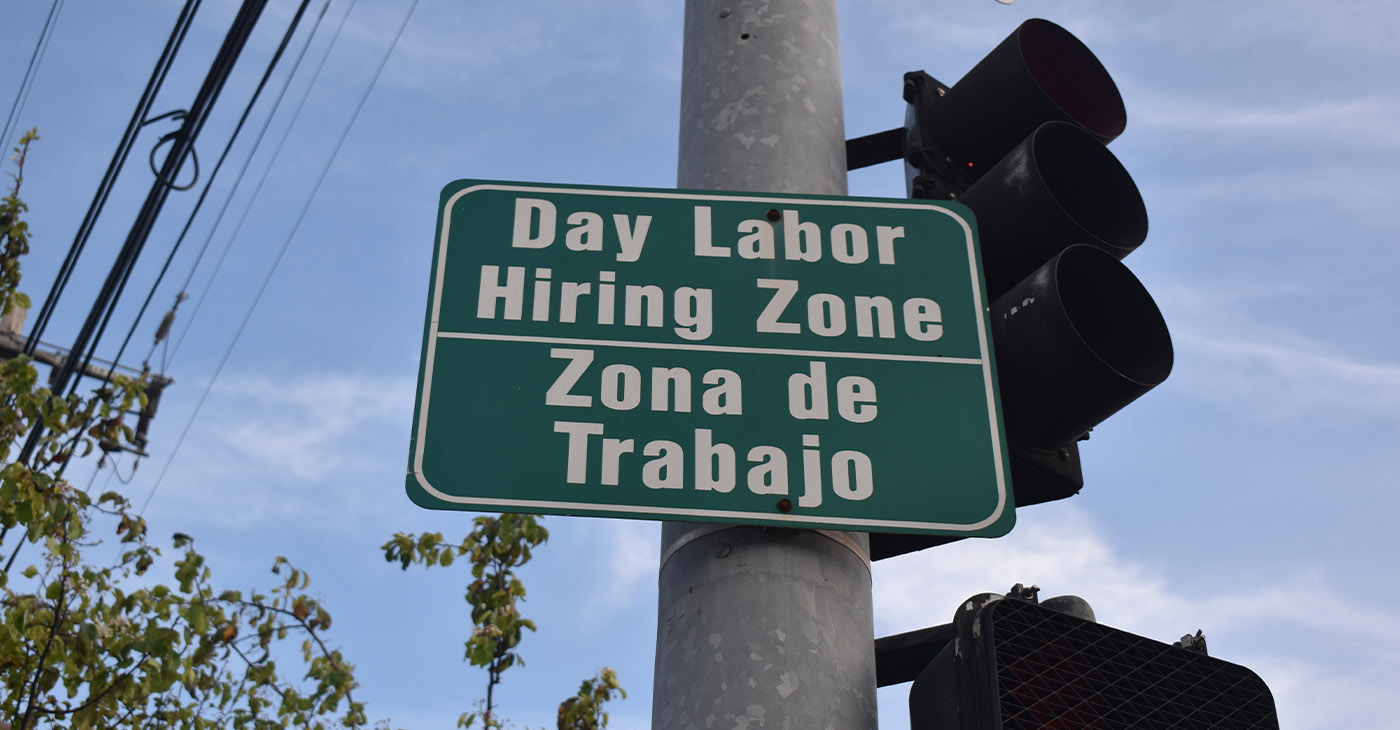
By Magaly Muñoz
Up and down the streets of the Fruitvale neighborhood in Oakland, immigrant workers head to empty parking lots and street corners waiting for a job. Some are as young as 14 and as old as 60.
Diego, a man in his late thirties, is a construction worker who arrived in the United States nine months ago. He, like many of the men standing beside him at the day laborer site, came to the U.S. in the hopes of providing a new life for his family. Now, Diego and other immigrants are worried as threats of deportation increase from the Trump administration.
Also worried are organizations such as Street Level Health Project, an Oakland-based nonprofit dedicated to providing access to health care and basic services to these laborers.
Street Level Health Project’s funding primarily comes from federal and local grants, These are in jeopardy because of city budget constraints and proposed cuts to federal social service dollars.
Already, the nonprofit’s local funding has been cut. The City of Oakland decreased one of the organization’s grants by $35,000 in one of its latest rounds of budget cuts, with city officials citing a looming budget deficit.
“Our primary day laborer program funding right now is secured, but we do have concerns in this next budget cycle if it will continue to be secured, given [the budget shortfall], and the recent cut to 13 community grants across the city,” said Executive Director Gabriela Galicia.
Founded more than 20 years ago, Street Level Health Project started with a handful of nurses and volunteers visiting day laborer sites in East Oakland to provide medical assistance and other resources to newly arrived immigrants. They quickly spotted symptoms common among day laborers: nausea, fatigue, and headaches. Sitting in the sun for hours waiting for work is typical. Once on a job, some men shared incidents of nearly passing out while working. Volunteer nurses also noticed signs of hunger among the men, with some going days without eating a proper meal.
“We’re the safety net to the safety net,” said Galicia. As Oakland’s sole organization devoted to helping undocumented workers, Street Level is often tasked with “picking up the leftovers” for groups that provide resources to the larger immigrant or underserved communities, she added. Now, that mission is under threat.
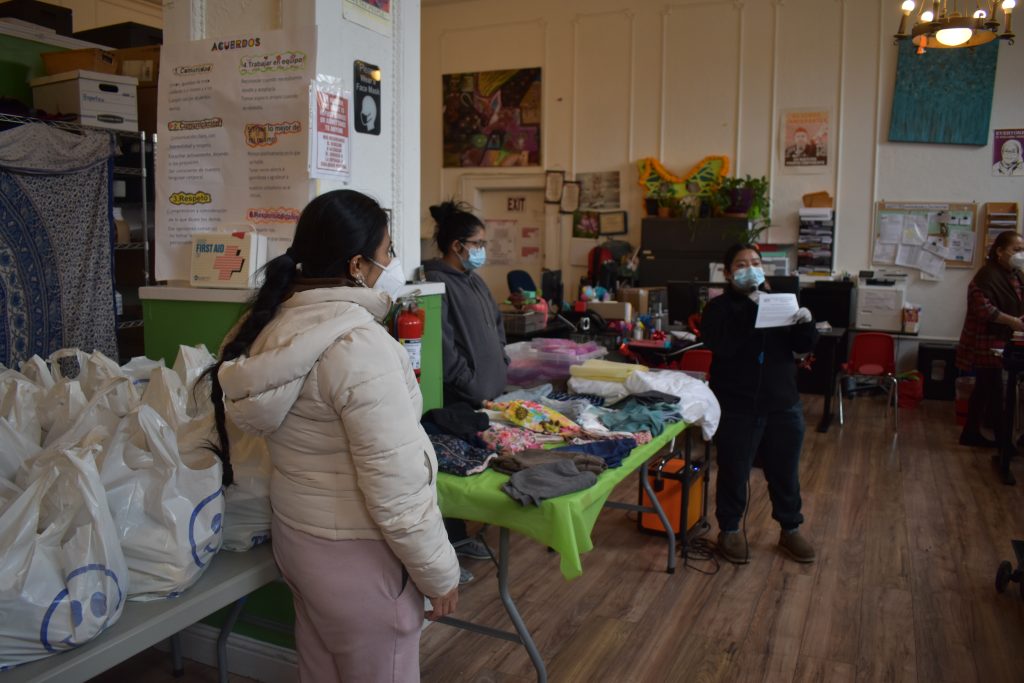
Level Health Project is a nonprofit organization in East Oakland that provides health and employment resources for immigrant day laborers and their families. The staff upped their efforts to provide information about immigration rights in the wake of Donald Trump’s presidency. Photo by Magaly Muñoz.
At day laborer sites in East Oakland, several workers said that they often skip buying groceries or meals for themselves in order to save money for rent or other necessities.
Diego, who like others interviewed for this story asked to not share his full name because of his undocumented status, said he’s lucky if he makes $300 a week. He said that is enough to pay for the small room he and his son rent in the Fruitvale – but not enough to feed them both. Diego said that he will sometimes go days without food.
The family Diego rents from is more fortunate, he said, because they’re able to afford meat and rice. At times, Diego said, it’s hard to ignore the savory smell that finds its way to his bedroom. Diego tells his son to look away from his landlord’s table to avoid feeling envious about what they cannot buy themselves.
“It’s hard because I know there’s food at the store, but there’s never enough [money] to buy it,” Diego said. “We barely have enough to pay our rent every month.”
On top of paying for the basics here in the U.S., day laborers also face pressure to support relatives in their home countries.
Pedro, interviewed on his BART ride home after an unsuccessful day of trying to find work in East Oakland, said his family in Guatemala regularly goes days without eating because he can’t make enough money in the Bay Area to send home to them.
“A lot of [day laborers] have their families back in [Latin America], making it harder to keep up with our needs here,” Pedro said. Some days he said the only thing he eats is the fruit that some local organizations hand out to workers like him.
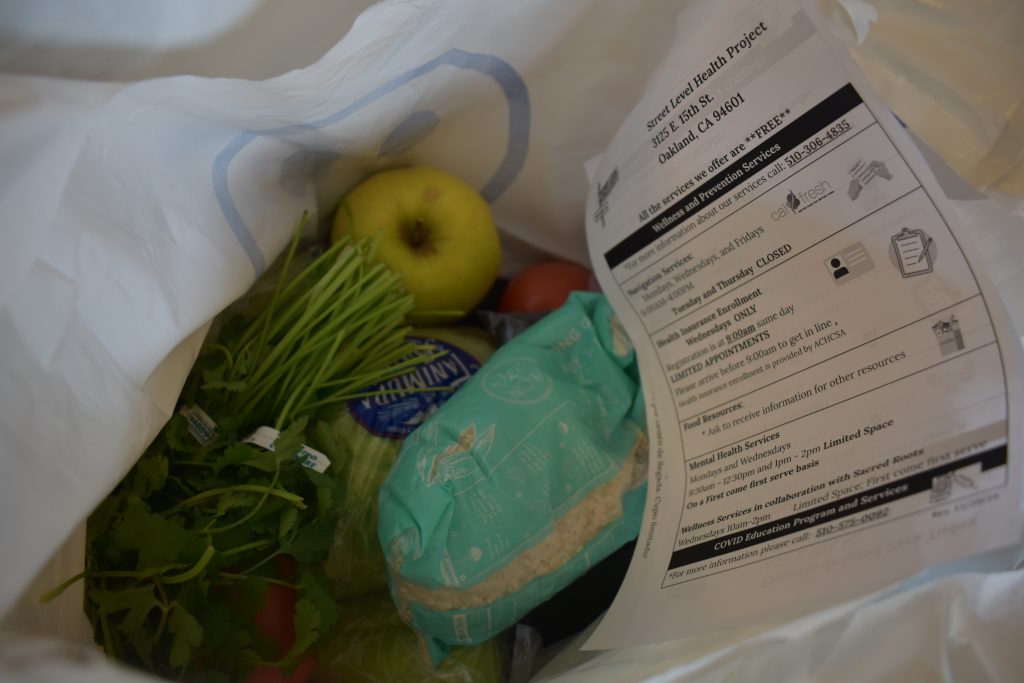
Street Level Health Project is providing weekly grocery bags to immigrant day laborers and their families to address the growing need for food in the community. Photo by Magaly Muñoz.
Bracing for bigger challenges
Before the pandemic, Street Level Health Project had a hot meal lunch program at their central office in the Fruitvale, where the organization provided meals twice a week for over 50 people. The organization also had a hot meal breakfast program where they prepared 50 to 90 meals, three times a week.
Understanding the food insecurity that many day laborers face, the project launched a food distribution program in 2011, distributing nearly 70 bags of groceries weekly. Thanks to additional funding, they were able to increase that to 150 food bags a week during the pandemic.
In recent years, Street Level Health Project reduced its weekly grocery distribution back to 70 bags and cut its hot meal program completely. Galicia, the director, said that’s because of the end of COVID-19 funding and staffing reductions.
Street Level Health Project also receives regular donations from the Alameda County Food Bank, but Galicia said it has not been enough to restore the food distribution program to what it was during the pandemic.
Currently, Street Level has a $100,000 grant from the city of Oakland to provide wrap-around services for day laborers, such as getting jobs for the workers, providing assistance with CalFresh and MediCal applications, and referring people to legal aid or immigration assistance. Galicia said that funding is barely enough to do the amount of work that the city expects.
Meanwhile, the $35,000 cut in funding has impacted the organization’s workers’ rights outreach and education services, she said.
The Oakland Post tried reaching out to city and county officials several times for comment but did not get a response.
Galicia fears city leaders will make even harsher cuts during the upcoming budget cycle this spring to balance a $130 million shortfall. Last year, Oakland cut funding for public safety, arts and culture programs, and 13 other nonprofits that serve the city’s most vulnerable populations.
Yet the budget concerns don’t stop with local government.
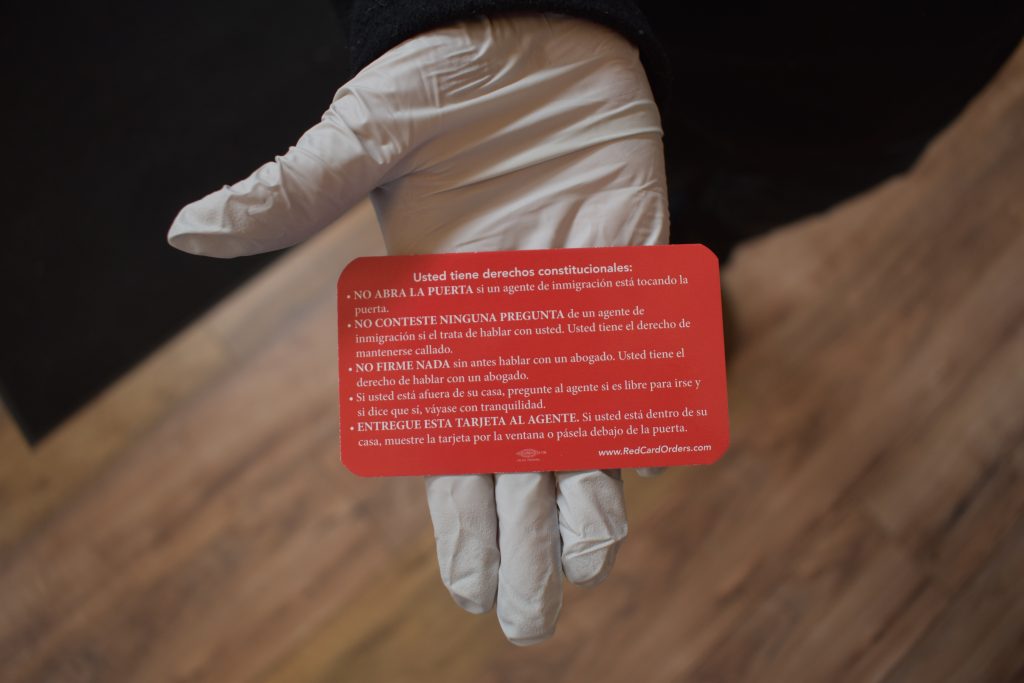
In the wake of Trump 2.0, organizations across the country are handing out “red cards” with the rights that immigrants should be aware of when encountering immigration officers. Photo by Magaly Muñoz.
Since President Donald Trump’s second inauguration, immigrant communities and the organizations that serve them have been in crisis mode.
Trump, who ran on a promise to deport millions of immigrants, has signed executive orders to stop birthright citizenship, shipped migrants to Guantanamo Bay, and attempted to freeze federal funding to social programs. Undocumented residents are increasingly anxious that their families might get separated.
Galicia said this is the time for local and state governments to invest in their organizations’ staff and direct resources, not take them away, from the people on the frontlines.
“I think that it’s just as important that funders are able to give to our teams, not just for the community but because the people doing the work have to be well, and we need ample resources to be able to do this work to support our community,” Galicia said.
For Pedro, the day laborer in Oakland, the combination of less support from nonprofits like Street Level Health Project, along with fear raised by the Trump administration’s deportation threats, has left him fearful. He is not alone, he said. He has noticed fewer day laborers showing up to their usual spots. Pedro said he himself fears encountering an immigration officer on his way to work.
“We don’t want to leave our homes, but at the same time, if we don’t go outside, we don’t work,” he said. “If we don’t work, we can’t afford to live.”
Oakland Post reporter Magaly Muñoz produced this story as part of a series as a 2024 USC Annenberg Center for Health Journalism Data Fellow and Engagement Grantee.
-

 #NNPA BlackPress3 weeks ago
#NNPA BlackPress3 weeks agoTarget Takes a Hit: $12.4 Billion Wiped Out as Boycotts Grow
-

 Activism3 weeks ago
Activism3 weeks agoUndocumented Workers Are Struggling to Feed Themselves. Slashed Budgets and New Immigration Policies Bring Fresh Challenges
-

 #NNPA BlackPress3 weeks ago
#NNPA BlackPress3 weeks agoBREAKING Groundbreaking Singer Angie Stone Dies in Car Accident at 63
-
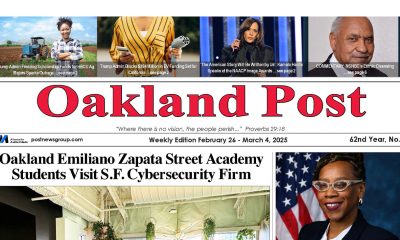
 Activism3 weeks ago
Activism3 weeks agoOakland Post: Week of February 26 – March 4, 2025
-

 #NNPA BlackPress3 weeks ago
#NNPA BlackPress3 weeks agoApple Shareholders Reject Effort to Dismantle DEI Initiatives, Approve $500 Billion U.S. Investment Plan
-

 #NNPA BlackPress3 weeks ago
#NNPA BlackPress3 weeks agoNAACP Legend and Freedom Fighter Hazel Dukes Passes
-

 #NNPA BlackPress3 weeks ago
#NNPA BlackPress3 weeks agoSeniors Beware: O’Malley Says Trump-Musk Cuts Will Cripple Social Security
-

 #NNPA BlackPress3 weeks ago
#NNPA BlackPress3 weeks agoTrump Kicks the Ukrainian President Out of the White House
Health
Paid to Sleep: NY Cracks Down on Napping Health Workers

MICHAEL VIRTANEN, Associated Press
ALBANY, N.Y. (AP) — By day, Tanya Lemon was a 35-year-old single mother who took care of her four children. By night, she worked 12-hour shifts as a nurse at a state group home in suburban Syracuse, paid to watch over vulnerable residents as they slept.
That’s also when she got her own sleep, prosecutors say — a routine that led to felony charges when Dennis Dattalo, a 25-year-old disabled man who couldn’t speak, ran low on oxygen while on her watch and later died.
The case has brought renewed attention in New York to the problem of fatigue among health care workers — and in particular highlights the low-paid nurses, aides and others who care for vulnerable people at night, when sleeping can all too often become part of the job.
Nurse Barbara Parsons worked with Lemon at the Briarwood Lane home in DeWitt, making $34,000 a year. Some staff, she said, signed up for extra shifts to get overtime pay and would shave a half-hour off second shifts to avoid rules limiting work hours. Sleeping on night shifts was common knowledge.
“She wasn’t the only one,” Parsons said. “Everybody knew it.”
While health workers who willfully sleep on the job — as opposed to nodding off or making errors because of fatigue — are more often disciplined or terminated, Lemon’s case last spring fired up prosecutors and invigorated a push by regulators in New York.
New York’s Justice Center for the Protection of People with Special Needs, established in mid-2013 with oversight of six state agencies responsible for more than a million people in direct state care or state-funded nonprofits, identified 458 reports alleging abuse or neglect from its first year that cited sleeping on the job. An additional 64 were classified as “significant incidents,” with potential to harm someone’s health, safety or welfare.
The center in December issued guidance to agencies, caregivers and families statewide in the effort to detect and deter the problem.
Statistics on the number of prosecutions of sleeping health workers are scant; several states contacted by The Associated Press said they don’t track such cases. But judging by the number of cases of sleeping in New York and Ohio, the problem is fairly widespread.
In Ohio Last year, the Department of Developmental Disabilities substantiated 88 instances in which paid caregivers slept on the job. Many happened on overnight shifts, when individuals in their care were asleep. No harm came about, and no law enforcement action was taken.
New York’s guidance on the fatigue problem cited five specific cases of developmentally disabled, mentally ill, drug-addicted and juvenile clients in state homes, all considered vulnerable and needing supervision. One had an unattended seizure. Another, with a tendency to choke, was eating alone at night. Others helped themselves to unlocked medications. One ran away. Six were in a vehicle when their caregiver fell asleep and crashed.
Patricia Gunning, the special prosecutor for New York’s Justice Center for disabled people, led the case against Lemon. She draws a sharp distinction between fatigue or nodding off and deliberate sleeping.
“Willful sleeping on the job is something that rises to criminal conduct,” Gunning said. Her office is investigating another possible criminal case. If they can prove supervisors knew about sleeping and looked the other way, at the Briarwood Lane home or any others, they’ll also be prosecuted, she said.
According to authorities, Lemon was supposed to check on Dattalo every two hours to ensure he was getting enough supplemental oxygen from a mask and to keep his airway clear. For eight hours he wasn’t checked, suffered brain damage from oxygen deprivation and was taken to a hospital, where he died 14 days later.
Lemon pleaded guilty to felony endangerment of a disabled person, was sentenced to 90 days in jail and five years’ probation, lost her nursing license, and is barred from working with individuals New York considers vulnerable.
Advocates for health workers like Lemon note that they work a tough job at a trying schedule for low pay, and have called for raises for what they say is important and underappreciated work caring for people who can’t care for themselves.
Lemon’s attorney, Jeffrey DeRoberts, said she has taken responsibility and is returning to school to learn to drive a truck, and he also noted case information indicated napping on overnight shifts was “not unusual” at Briarwood Lane.
“She was doing the best she could,” he said.
___
Online:
Report from New York’s Justice Center for the Protection of People with Special Needs:
http://on.ny.gov/1F9rs4H
Copyright 2015 The Associated Press. All rights reserved. This material may not be published, broadcast, rewritten or redistributed.
Bay Area
Five Years After COVID-19 Began, a Struggling Child Care Workforce Faces New Threats
Five years ago, as COVID-19 lockdowns and school closures began, most early educators continued to work in person, risking their own health and that of their families. “Early educators were called essential, but they weren’t provided with the personal protective equipment they needed to stay safe,” said CSCCE Executive Director Lea Austin. “There were no special shopping hours or ways for them to access safety materials in those early and scary months of the pandemic, leaving them to compete with other shoppers. One state even advised them to wear trash bags if they couldn’t find PPE.”

UC Berkeley News
In the first eight months of the COVID-19 pandemic alone, 166,000 childcare jobs were lost across the nation. Significant recovery didn’t begin until the advent of American Rescue Plan Act (ARPA) Child Care Stabilization funds in April 2021.
Today, child care employment is back to slightly above pre-pandemic levels, but job growth has remained sluggish at 1.4% since ARPA funding allocations ended in October 2023, according to analysis by the Center for the Study of Child Care Employment (CSCCE) at UC Berkeley. In the last six months, childcare employment has hovered around 1.1 million.
Yet more than two million American parents report job changes due to problems accessing child care. Why does the childcare sector continue to face a workforce crisis that has predated the pandemic? Inadequate compensation drives high turnover rates and workforce shortages that predate the pandemic. Early childhood educators are skilled professionals; many have more than 15 years of experience and a college degree, but their compensation does not reflect their expertise. The national median hourly wage is $13.07, and only a small proportion of early educators receive benefits.
And now a new round of challenges is about to hit childcare. The low wages paid in early care and education result in 43% of early educator families depending on at least one public support program, such as Medicaid or food stamps, both of which are threatened by potential federal funding cuts. Job numbers will likely fall as many early childhood educators need to find jobs with healthcare benefits or better pay.
In addition, one in five child care workers are immigrants, and executive orders driving deportation and ICE raids will further devastate the entire early care and education system. These stresses are part of the historical lack of respect the workforce faces, despite all they contribute to children, families, and the economy.
Five years ago, as COVID-19 lockdowns and school closures began, most early educators continued to work in person, risking their own health and that of their families. “Early educators were called essential, but they weren’t provided with the personal protective equipment they needed to stay safe,” said CSCCE Executive Director Lea Austin. “There were no special shopping hours or ways for them to access safety materials in those early and scary months of the pandemic, leaving them to compete with other shoppers. One state even advised them to wear trash bags if they couldn’t find PPE.”
The economic impact was equally dire. Even as many providers tried to remain open to ensure their financial security, the combination of higher costs to meet safety protocols and lower revenue from fewer children enrolled led to job losses, increased debt, and program closures.
Eventually, the federal government responded with historic short-term investments through ARPA, which stabilized childcare programs. These funds provided money to increase pay or provide financial relief to early educators to improve their income and well-being. The childcare sector began to slowly recover. Larger job gains were made in 2022 and 2023, and as of November 2023, national job numbers had slightly surpassed pre-pandemic levels, though state and metro areas continued to fluctuate.
Many states have continued to support the workforce after ARPA funding expired in late 2024. In Maine, a salary supplement initiative has provided monthly stipends of $240-$540 to educators working in licensed home- or center-based care, based on education and experience, making it one of the nation’s leaders in its support of early educators. Early educators say the program has enabled them to raise wages, which has improved staff retention. Yet now, Governor Janet Mills is considering cutting the stipend program in half.
“History shows that once an emergency is perceived to have passed, public funding that supports the early care and education workforce is pulled,” says Austin. “You can’t build a stable childcare workforce and system without consistent public investment and respect for all that early educators contribute.”
The Center for the Study of Childcare Employment is the source of this story.
Activism
San Francisco Is Investing Millions to Address Food Insecurity. Is Oakland Doing the Same?
There are over 350 grocery programs across San Francisco. Less than a handful in District 10, a neighborhood classified as a food desert, and includes Hunters Point, one of the lowest income areas in the city.

By Magaly Muñoz
On a Thursday evening in February, Marquez Boyd walked along the aisles of San Francisco’s District 10 Community Market looking for eggs and fresh produce to take home to his children. He has been trying new recipes with ingredients he previously couldn’t afford or access.
“I learned how to cook greens since they got a lot of fresh greens here,” Boyd said. “All that stuff is better and more healthy for my kids because they’re still young.”
Meals filled with fresh produce are now possible for Boyd since the District 10 market in Hunters Point opened in 2024 when Bayview Senior Services, a non-profit running the program, received a $5 million investment from the city of San Francisco.
The market is a twist on a traditional food bank, where people can often wait in long lines for pre-bagged groceries they may not need. Here, the goal is to offer people in need a more traditional grocery store setting, with a bigger range of healthy options and less shame for needing assistance.
It’s a twist that Boyd appreciated. “This set up is way better as opposed to maybe like a food bank line,” he said. “It’s easier and faster.”
Similar models exist in Santa Barbara and Tennessee.
There are over 350 grocery programs across San Francisco. Less than a handful in District 10, a neighborhood classified as a food desert, and includes Hunters Point, one of the lowest income areas in the city.
Census Bureau data show that the median income for households in the 94124 zip code, where Hunters Point is located, is just under $83,000 annually. Black households earn about $46,000, Native Hawaiian or other Pacific Islanders earn almost $41,000, and Hispanic households make just above the median income- an average of $86,000.
Located at 5030 3rd Street, the aisles are lined with fresh produce, canned goods, bread and snacks. While refrigerators and freezers in the back of the market are filled with dairy products and meat.
The best part- everything inside is free for eligible customers.

The San Francisco District 10 Community Market is stocked with fresh produce, dairy, meat and chicken, bread, and cultural food staples. Directors of the market say they pride themselves on providing healthy options for community members. Photo by Magaly Muñoz.
“The interesting thing about this market is that it’s a city-funded effort to create something besides the average food line to give more dignity and choice than is normally given to low-income people,” said Cathy Davis, executive director of Bayview Senior Services.
Davis said people feel more comfortable coming into the market because they can choose the food they want and at a time that’s convenient for them.
Boyd, a single father of two kids, recently lost his job and relied on his sister’s generosity before discovering the market. He comes to market when he gets off of work in the evening.
“It’s a lot of people in these communities that don’t get a chance to eat healthy,” Boyd said. “They don’t have the money to go to grocery stores to buy expensive stuff.”
Another shopper, Rhonda Hudson, said the market helped her meet her grandson’s diet-related health problems. She used to travel outside the neighborhood for affordable groceries, but now she no longer has to.
According to the city’s Human Services Agency, there are no plans to expand the markets in San Francisco due to budget constraints.
But Davis isn’t worried about losing the market funding.
“City leaders were on board with creating it and finding the money to put it together so I would say we didn’t have to advocate because it came through the government. Now it’s our job to keep it going to prove that it’s a pilot worth maintaining,” Davis said.
District 10 Supervisor Shamann Walton, who co-sponsored the ordinance, said that projects like the market are “essential to our neighborhoods,” where access to affordable food has been a challenge.
“Investing in local community markets helps ensure that families have reliable, healthy food options close to home, addressing food insecurity and supporting the well-being of our community regardless of income,” Walton said.

Rhonda Hudson is a shopper of the District 10 Community Market in San Francisco. The fresh produce she gets at the free grocery store program helps her grandson, who has a diet-related illness, stay healthy. Photo by Magaly Muñoz.
Why Not Oakland?
Only slightly larger than San Francisco, Oakland has over 400 food distribution sites. Oakland provides grants to nonprofit-run organizations who run grocery programs. But in recent months, the city has begun to reduce those, forcing some organizations to regroup, and making it challenging to implement a community market similar to San Francisco’s.
The Oakland Post repeatedly reached out to city and county officials for comment on the story but did not receive a response.
At several food banks across West and East Oakland, residents shared their frustrations about long lines, wilting produce, and limited food choices.
At one food bank, located at Christian Tabernacle Church, a young mother, who requested anonymity for privacy reasons, waited in the rain for over three hours for a single bag of groceries.
“I like to get here early because I get better [quality] fruits and vegetables,” she said. She added that it’s not a lot of food that she receives for her family, but it helps close the gap when her budget is tight.
Behind her, several other women waited their turn. Neither the timing of the distribution nor the location of the food bank fit their schedules, the women said, but their choices feel limited.
Only a handful of Oakland food bank sites operate throughout the day, like the San Francisco market. Most food distribution programs are sustained by Alameda County Food Bank, not by city funding. Private grants and donations also help fund the programs.
Securing city funding is increasingly challenging. Oakland faces a $130 million budget shortfall, with a projected $280 million deficit in the next biennial cycle. Citing budget concerns, the city has reduced numerous department budgets and grants. One of those cuts included slashing the longstanding SOS Meals on Wheels grant, which helped provide food to 3,000 seniors.
Charlie Deterline, executive director of Meals on Wheels, said the termination of their $150,000 annual grant could mean that Oakland residents might see a change in the amount of meals they receive. The organization has gone 19 months without funding from that grant, Deterline said, but “continued working on good faith from the city” because they were assured they would be paid out. Now, Deterline is having doubts.
The program also received a grant of more than $125,000 from the Sugar Sweetened Beverage Tax. Yet, on June 12, the city informed grant recipients that the funding could be rescinded in order to balance the budget. That ultimately happened, said Deterline.
“Oakland is by far the most expensive city for us to operate in. It is also where the greatest need is – for us to meet that need, it will take the entire community coming together,” Deterline said.
From the sugar tax, money from that measure is also not being allocated correctly as the majority of the funding has been used to fund government services, said members of the SSB tax advisory board.
The tax generates around $7 million annually. 25% to 40% of the funding goes towards grants for community based organizations instead of the 60% allocation that the SSBT advisory board recommended the city to use for health programs. The rest of the funding goes to the city, according to Oakland’s mid-cycle budget.
Advisory board member Dwayne Aikens said he’s not sure Oakland will ever renew the grants that have been cut from this tax. “I’m looking at the conditions of the city and I’m not optimistic,” Aikens said. “If they don’t have the money now, I don’t think they’ll have the money in the future.”
Aikens said the tax was “kind of a waste.” He’s heard displeasure from the community about the lack of funding into Black and Brown neighborhoods, groups who typically live in areas of Oakland that see health and income disparities.
Meanwhile, the Community Market, which reflects the diversity of the Bayview Hunters Point community, is investing in over 800 of the city’s most vulnerable households. In-store staff and directors speak the languages common to the area and the program provides a culture-of-the week selection of foods for those interested in trying something new.
Davis said it’s up to local municipalities to ensure that residents don’t go to bed hungry, and investments need to be made in order to combat the pockets of neighborhoods who are on the brink of food insecurity.
“That’s just such a core responsibility and a core goal of everyone, to make sure that people are fed and healthy. It’s not a luxury item,” Davis said. “It’s something that needs to happen, whether we’re in a budget crisis or not.”
Reporter Magaly Muñoz produced this story as part of a series as a 2024 USC Annenberg Center for Health Journalism Data Fellow and Engagement Grantee.
Activism
Undocumented Workers Are Struggling to Feed Themselves. Slashed Budgets and New Immigration Policies Bring Fresh Challenges
Founded more than 20 years ago, Street Level Health Project started with a handful of nurses and volunteers visiting day laborer sites in East Oakland to provide medical assistance and other resources to newly arrived immigrants. They quickly spotted symptoms common among day laborers: nausea, fatigue, and headaches. Sitting in the sun for hours waiting for work is typical. Once on a job, some men shared incidents of nearly passing out while working. Volunteer nurses also noticed signs of hunger among the men, with some going days without eating a proper meal.

By Magaly Muñoz
Up and down the streets of the Fruitvale neighborhood in Oakland, immigrant workers head to empty parking lots and street corners waiting for a job. Some are as young as 14 and as old as 60.
Diego, a man in his late thirties, is a construction worker who arrived in the United States nine months ago. He, like many of the men standing beside him at the day laborer site, came to the U.S. in the hopes of providing a new life for his family. Now, Diego and other immigrants are worried as threats of deportation increase from the Trump administration.
Also worried are organizations such as Street Level Health Project, an Oakland-based nonprofit dedicated to providing access to health care and basic services to these laborers.
Street Level Health Project’s funding primarily comes from federal and local grants, These are in jeopardy because of city budget constraints and proposed cuts to federal social service dollars.
Already, the nonprofit’s local funding has been cut. The City of Oakland decreased one of the organization’s grants by $35,000 in one of its latest rounds of budget cuts, with city officials citing a looming budget deficit.
“Our primary day laborer program funding right now is secured, but we do have concerns in this next budget cycle if it will continue to be secured, given [the budget shortfall], and the recent cut to 13 community grants across the city,” said Executive Director Gabriela Galicia.
Founded more than 20 years ago, Street Level Health Project started with a handful of nurses and volunteers visiting day laborer sites in East Oakland to provide medical assistance and other resources to newly arrived immigrants. They quickly spotted symptoms common among day laborers: nausea, fatigue, and headaches. Sitting in the sun for hours waiting for work is typical. Once on a job, some men shared incidents of nearly passing out while working. Volunteer nurses also noticed signs of hunger among the men, with some going days without eating a proper meal.
“We’re the safety net to the safety net,” said Galicia. As Oakland’s sole organization devoted to helping undocumented workers, Street Level is often tasked with “picking up the leftovers” for groups that provide resources to the larger immigrant or underserved communities, she added. Now, that mission is under threat.

Level Health Project is a nonprofit organization in East Oakland that provides health and employment resources for immigrant day laborers and their families. The staff upped their efforts to provide information about immigration rights in the wake of Donald Trump’s presidency. Photo by Magaly Muñoz.
At day laborer sites in East Oakland, several workers said that they often skip buying groceries or meals for themselves in order to save money for rent or other necessities.
Diego, who like others interviewed for this story asked to not share his full name because of his undocumented status, said he’s lucky if he makes $300 a week. He said that is enough to pay for the small room he and his son rent in the Fruitvale – but not enough to feed them both. Diego said that he will sometimes go days without food.
The family Diego rents from is more fortunate, he said, because they’re able to afford meat and rice. At times, Diego said, it’s hard to ignore the savory smell that finds its way to his bedroom. Diego tells his son to look away from his landlord’s table to avoid feeling envious about what they cannot buy themselves.
“It’s hard because I know there’s food at the store, but there’s never enough [money] to buy it,” Diego said. “We barely have enough to pay our rent every month.”
On top of paying for the basics here in the U.S., day laborers also face pressure to support relatives in their home countries.
Pedro, interviewed on his BART ride home after an unsuccessful day of trying to find work in East Oakland, said his family in Guatemala regularly goes days without eating because he can’t make enough money in the Bay Area to send home to them.
“A lot of [day laborers] have their families back in [Latin America], making it harder to keep up with our needs here,” Pedro said. Some days he said the only thing he eats is the fruit that some local organizations hand out to workers like him.

Street Level Health Project is providing weekly grocery bags to immigrant day laborers and their families to address the growing need for food in the community. Photo by Magaly Muñoz.
Bracing for bigger challenges
Before the pandemic, Street Level Health Project had a hot meal lunch program at their central office in the Fruitvale, where the organization provided meals twice a week for over 50 people. The organization also had a hot meal breakfast program where they prepared 50 to 90 meals, three times a week.
Understanding the food insecurity that many day laborers face, the project launched a food distribution program in 2011, distributing nearly 70 bags of groceries weekly. Thanks to additional funding, they were able to increase that to 150 food bags a week during the pandemic.
In recent years, Street Level Health Project reduced its weekly grocery distribution back to 70 bags and cut its hot meal program completely. Galicia, the director, said that’s because of the end of COVID-19 funding and staffing reductions.
Street Level Health Project also receives regular donations from the Alameda County Food Bank, but Galicia said it has not been enough to restore the food distribution program to what it was during the pandemic.
Currently, Street Level has a $100,000 grant from the city of Oakland to provide wrap-around services for day laborers, such as getting jobs for the workers, providing assistance with CalFresh and MediCal applications, and referring people to legal aid or immigration assistance. Galicia said that funding is barely enough to do the amount of work that the city expects.
Meanwhile, the $35,000 cut in funding has impacted the organization’s workers’ rights outreach and education services, she said.
The Oakland Post tried reaching out to city and county officials several times for comment but did not get a response.
Galicia fears city leaders will make even harsher cuts during the upcoming budget cycle this spring to balance a $130 million shortfall. Last year, Oakland cut funding for public safety, arts and culture programs, and 13 other nonprofits that serve the city’s most vulnerable populations.
Yet the budget concerns don’t stop with local government.

In the wake of Trump 2.0, organizations across the country are handing out “red cards” with the rights that immigrants should be aware of when encountering immigration officers. Photo by Magaly Muñoz.
Since President Donald Trump’s second inauguration, immigrant communities and the organizations that serve them have been in crisis mode.
Trump, who ran on a promise to deport millions of immigrants, has signed executive orders to stop birthright citizenship, shipped migrants to Guantanamo Bay, and attempted to freeze federal funding to social programs. Undocumented residents are increasingly anxious that their families might get separated.
Galicia said this is the time for local and state governments to invest in their organizations’ staff and direct resources, not take them away, from the people on the frontlines.
“I think that it’s just as important that funders are able to give to our teams, not just for the community but because the people doing the work have to be well, and we need ample resources to be able to do this work to support our community,” Galicia said.
For Pedro, the day laborer in Oakland, the combination of less support from nonprofits like Street Level Health Project, along with fear raised by the Trump administration’s deportation threats, has left him fearful. He is not alone, he said. He has noticed fewer day laborers showing up to their usual spots. Pedro said he himself fears encountering an immigration officer on his way to work.
“We don’t want to leave our homes, but at the same time, if we don’t go outside, we don’t work,” he said. “If we don’t work, we can’t afford to live.”
Oakland Post reporter Magaly Muñoz produced this story as part of a series as a 2024 USC Annenberg Center for Health Journalism Data Fellow and Engagement Grantee.
-

 #NNPA BlackPress3 weeks ago
#NNPA BlackPress3 weeks agoTarget Takes a Hit: $12.4 Billion Wiped Out as Boycotts Grow
-

 Activism3 weeks ago
Activism3 weeks agoUndocumented Workers Are Struggling to Feed Themselves. Slashed Budgets and New Immigration Policies Bring Fresh Challenges
-

 #NNPA BlackPress3 weeks ago
#NNPA BlackPress3 weeks agoBREAKING Groundbreaking Singer Angie Stone Dies in Car Accident at 63
-

 Activism3 weeks ago
Activism3 weeks agoOakland Post: Week of February 26 – March 4, 2025
-

 #NNPA BlackPress3 weeks ago
#NNPA BlackPress3 weeks agoApple Shareholders Reject Effort to Dismantle DEI Initiatives, Approve $500 Billion U.S. Investment Plan
-

 #NNPA BlackPress3 weeks ago
#NNPA BlackPress3 weeks agoNAACP Legend and Freedom Fighter Hazel Dukes Passes
-

 #NNPA BlackPress3 weeks ago
#NNPA BlackPress3 weeks agoSeniors Beware: O’Malley Says Trump-Musk Cuts Will Cripple Social Security
-

 #NNPA BlackPress3 weeks ago
#NNPA BlackPress3 weeks agoTrump Kicks the Ukrainian President Out of the White House

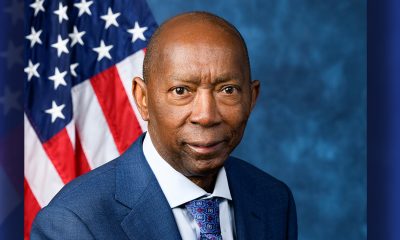





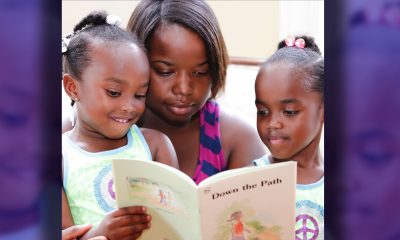

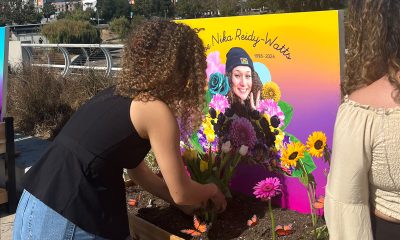

















































Leave a Reply